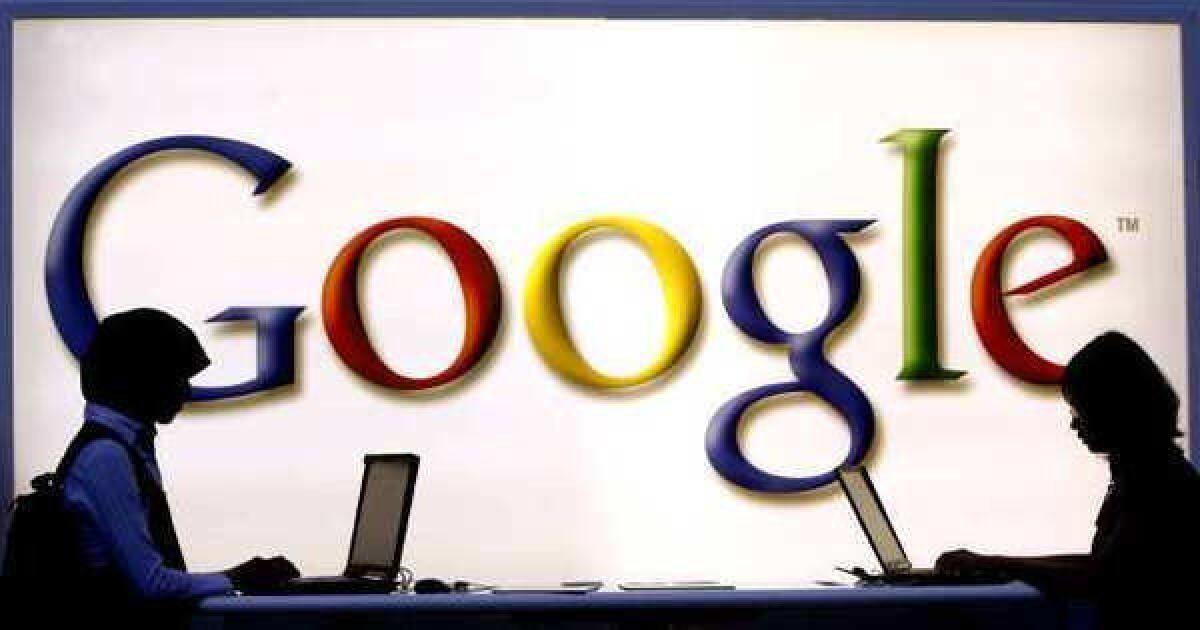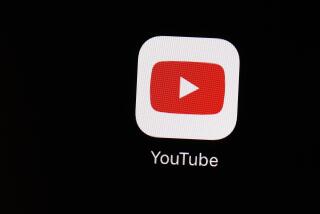Google praised for move to penalize sites hosting pirated content

- Share via
Hollywood and other content owners, whose relationship with Google is fitful at best, gave the Silicon Valley search company rare praise Friday for its move to penalize websites that have been flagged by copyright holders for potentially hosting pirated entertainment.
In a blog post on the company’s website, Google explained the changes it had made to its search algorithm, which determines what results it provides to people using its search engine.
“Starting next week, we will begin taking into account a new signal in our rankings: the number of valid copyright removal notices we receive for any given site,” wrote Amit Singhal, Google’s senior vice president of engineering. “Sites with high numbers of removal notices may appear lower in our results. This ranking change should help users find legitimate, quality sources of content more easily -- whether it’s a song previewed on NPR’s music website, a TV show on Hulu or new music streamed from Spotify.”
Singhal noted that Google is deluged with notices from copyright holders such as music labels and movie studios alerting them to sites that have potentially trafficked in pirated content. In the last 30 days, it processed requests to 4.3 million links to such websites, he said, more than the company received in all of 2009.
Groups representing the movie and music companies were quick to laud Google for the move. The Recording Industry Assn. of America in a statement said: “This change is an important step in the right direction – a step we’ve been urging Google to take for a long time – and we commend the company for its action.”
The Motion Picture Assn. of America, which had been sharply at odds with Google over its efforts to block anti-piracy legislation, was also complimentary, though far more guarded, with its comment.
“We are optimistic that Google’s actions will help steer consumers to the myriad legitimate ways for them to access movies and TV shows online, and away from the rogue cyberlockers, peer-to-peer sites, and other outlaw enterprises that steal the hard work of creators across the globe,” said Michael O’Leary, MPAA’s Senior Executive Vice President for Global Policy and External Affairs. “We will be watching this development closely – the devil is always in the details – and look forward to Google taking further steps to ensure that its services favor legitimate businesses and creators, not thieves.”
Google over the years has struggled to balance what it regards as a need for an open and unrestricted Internet with pressure from content holders to censure sites that promote piracy. Friday’s move, while welcomed by movie studios and music labels, displeased advocates of the free Internet camp.
John Bergmeyer, senior staff attorney for Public Knowledge, expressed concern that Google’s changes could unintentionally penalize sites that are innocent of copyright violations. Such sites could include services that let users upload and share content, such as Google’s own YouTube or Yahoo’s Flickr. While users may violate copyrights by uploading, say, a Lady Gaga album, the sites themselves may be perfectly within the law if they have certain measures in place to flag and remove the album.
“If Google’s new policy helps users find legitimate sources of content, protects the valid interests of copyright holders, and doesn’t penalize lawful sites, then it’s a win all around,” he wrote. “But any new system such as this has potential dangers and unintended consequences, and can be abused.”
ALSO:
Google hit with $22.5-million fine for Safari tracking
Google offers to make concessions in EU antitrust probe
Google sneaked tracking files onto iPhones, privacy researchers say
Twitter: @AlexPham
More to Read
From the Oscars to the Emmys.
Get the Envelope newsletter for exclusive awards season coverage, behind-the-scenes stories from the Envelope podcast and columnist Glenn Whipp’s must-read analysis.
You may occasionally receive promotional content from the Los Angeles Times.







